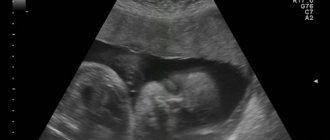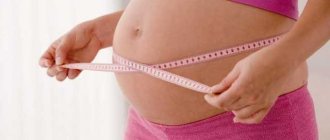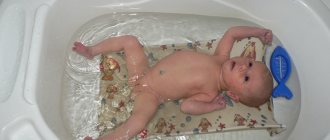After giving birth, a difficult period begins in the life of any woman - she devotes all her time to her baby, which is quite natural. But in a month, when the postpartum wounds heal, a new stage of marital relations begins. At the same time, many women relax and forget about contraceptive measures, mistakenly believing that they are not in danger of a second pregnancy immediately after childbirth.
There are many myths that you can have sex without protection after giving birth. But is it? Let's find out!
Myth number two: you don’t have to worry about contraception until your periods have returned.
This is another mistake that women often make. This situation is dangerous because the onset of pregnancy after childbirth may be asymptomatic, because the body is accustomed to cataclysms and unpleasant conditions during the previous pregnancy. The most dangerous in this regard will be the first three months of sex after childbirth. Therefore, it is imperative to protect yourself.
The myth that there are “dangerous” and “safe” days is best forgotten. Gynecologists believe that after childbirth, the menstrual cycle is not immediately restored - it is irregular for up to six months, so it is very easy to make mistakes in calculations.
What is the probability of getting pregnant 1-2 months after giving birth?
How quickly can you get pregnant after giving birth? Is it possible to conceive in just one or two months?
This question interests all women who have just become mothers. Today, the fact of such rapid conception will no longer surprise anyone, although previously women believed that fertilization was excluded with natural feeding. Conception is possible already during the first ovulation, which can come immediately after the end of postpartum bleeding, until the cycle is restored. That is, you can get pregnant within 3 weeks after birth. If this happens and your test shows two lines, this means that the hormonal balance is established. However, doctors do not recommend conceiving so quickly.
If spouses dream of children the same age, it is still better to wait until at least six months. In six months, the couple will feel more confident, and the first child will grow up.
Myth number three: you cannot take hormonal contraceptives during breastfeeding.
This statement is also wrong. Modern contraceptives are safe, they can be used even while breastfeeding, provided that they are selected by an experienced gynecologist.
In general, speaking about contraception after childbirth, it should be noted that there is no single recipe for every new mother. When choosing a method, a gynecologist takes into account many factors: age, weight, state of the body after childbirth, previous experience of contraception. Therefore, it is impossible to give unambiguous advice on exactly how best to protect yourself after childbirth: each method has its positive and negative sides.
When can you get pregnant after a miscarriage - research, experiments, observations
How long should a woman wait to try to conceive again? Recent research by scientists at the National Institute of Child Health and Human Development (USA) has proven that by trying to conceive within 3 months after a misfortune, couples increase the success of their attempts by 71% and subsequently give birth to healthy children. The study, which was based on the conceptual question of whether you can get pregnant immediately after a miscarriage or should you wait, found in 1,000 couples that timing matters.
765 couples tried to get pregnant in the first 90 days after a miscarriage and in 77% of cases they conceived and gave birth to a healthy baby. Those couples who waited longer than the specified period had a child in only 23% of cases. This proves that when figuring out how long it takes to get pregnant after a miscarriage, cast aside doubts and try to conceive. Scientists have proven that couples should not wait a certain period of time. The main thing is psychological and physiological readiness for pregnancy.
Pros and cons of intrauterine devices after childbirth
Women simply call IUDs coils. These products are made of inert plastic, into which thin copper wire is embedded. The spiral is inserted into the uterine cavity, so the substances included in its composition do not enter the stomach, and, accordingly, into breast milk.
This contraceptive is convenient because there is no need to take pills. It is almost impossible to get pregnant with the IUD, if it is correctly selected and installed - it is treated with a special compound that destroys sperm.
Gynecologists recommend installing an IUD at least 6 weeks after the birth of the child. If this is done before this time, the spiral may fall out. The method is 98% effective. The spiral can work from 5 to 10 years, depending on the composition. IUDs are absolutely harmless during breastfeeding. If necessary, they can always be removed.
The disadvantages of this method include some side effects that occur in approximately 3 out of 100 women: painful and heavy menstruation, nausea.
Before installing the IUD, you need to cure all existing chronic diseases. IUDs are contraindicated if there was a cesarean section.
Pregnancy after childbirth
It is imperative to remember some seemingly obvious things that many parents for some reason do not take into account.
- When is it theoretically possible to get pregnant again? The answer is simple: as soon as menstruation returns. Here the timing is individual: for some it happens in one to three months, for others in six months or even nine months. It's impossible to predict.
- Breastfeeding is not a method of contraception! Yes, during breastfeeding, prolactin levels are high, which inhibits the attachment of the embryo to the endometrium of the uterus. But, firstly, this increases the risk of ectopic pregnancy, and secondly, implantation of the embryo into the uterus is still possible. Low probability does not mean zero. Therefore, if you do not plan to have a second child quickly, take precautions. The doctor will tell you exactly how.
The barrier method is no less effective
The most reliable way to protect against re-pregnancy in the first months after childbirth is a condom. Recently, good diaphragms and spermicides have begun to be produced, which are also barrier methods, but they are inconvenient because they require insertion into the vagina a certain time before sexual intercourse.
These methods are not very advertised and widespread, so many do not trust them. However, they are effective. Diaphragms are selected by a gynecologist and installed immediately before sex. The use of a diaphragm is recommended in combination with spermicides, which come, for example, in the form of cream, aerosols or suppositories.
This method protects by 85-97% and becomes the only solution when hormonal contraception is banned. It can be used safely while breastfeeding. Barrier methods are also good because they protect against most diseases that are sexually transmitted and can be dangerous for the female body, weakened by childbirth.
In order for this method to be effective and safe, you must strictly adhere to the instructions for its use. It should be taken into account that spermicides are not effective for long - they last up to 2 hours, so when you have repeated sexual intercourse, the diaphragm is reinserted. It should be in the vagina for at least 6 hours after sex, but no more than a day.
Chance of conception in 3-4 months with breastfeeding
The question of whether it is possible to get pregnant after 3 or 4 months after giving birth worries even those mothers who are on guard duty. If the risk 2 months after birth is low, then by 3-4 months women can conceive very quickly. The probability is high if:
- the child stops breastfeeding at night;
- a woman feeds her baby less than 5 times a day;
- natural feeding is combined with artificial nutrition.
During the first year of life, a small child is in dire need of his mother’s affection, parental care and care.
The increased risk is caused by pituitary hormones. The less the baby suckles, the less prolactin is produced, and, therefore, the greater the chance of ovulation.
Hormonal contraceptives
A nursing mother should not joke with this method, because incorrect concentrations of hormones can affect the quantity and quality of milk and the woman’s overall well-being. You should select birth control pills only after consulting a specialist.
For birth control pills to be effective, they must be taken every day and at the same hour. You can start drinking them as early as 6 weeks after the baby is born. The method is quite effective up to 98%. Moreover, such tablets contain the hormone gestagen, which has a negative effect on cancer cells and helps reduce the risk of cancer.
Like most contraceptives, the pill has disadvantages. For example, at first they can cause unpleasant side effects - dizziness, lightheadedness, worsening mood, menstrual irregularities. It is better not to take birth control pills while taking antibiotics. Women who smoke, as well as those who have heart disease, should be treated with special caution.
There are birth control pills that contain a complex of hormones. They should not be consumed during breastfeeding, since the elements included in the composition can lead to a decrease in milk production.
When does ovulation resume?
Immediately after the birth of the baby, the woman experiences profuse bleeding. Thus, the body gets rid of everything that the fetus needed to live in the womb. As a rule, the period of such discharge is no less than 2-3 weeks, and during this time doctors prohibit resuming sexual contacts. Because a woman’s body needs time for everything inside to heal and recover.
Doctors say that theoretically, in the first weeks after childbirth, when discharge occurs, a woman does not ovulate. This process involves the egg being released from the follicle and the sperm being able to fertilize it, causing the woman to become pregnant. Without ovulation, fertilization simply will not happen.
Often women are sure that if their menstrual cycle does not resume after childbirth, then they cannot get pregnant, since the process of ovulation does not occur in the body. We assure you, this is a deep misconception. Today, there are many known cases where ovulation after childbirth occurred literally a month after the birth of the baby, and there were no periods at all.
More on the topic
First ovulation after childbirth
Is it possible to get pregnant without menstruation after childbirth?
When can you get pregnant after childbirth?
When does a woman usually lose her belly after childbirth?
When can you have sex after childbirth?
In addition, in the practice of literally every doctor there are cases when a woman became pregnant a month after giving birth. In such women, the body perceives childbirth as the last day of menstruation and resumes its work as usual. Therefore, if a young mother has unprotected sexual contact during this period, she is unlikely to be able to avoid a new pregnancy. And such a short gap between pregnancies will not lead to anything good. During the postpartum period, the body of a young mother is exhausted and exhausted. All reserves of vitamins and microelements are exhausted, and besides, a woman needs a lot of strength to care for a newborn baby. If a woman, having become pregnant a month after giving birth, decides to have an abortion, this will also negatively affect her health. If she is breastfeeding, the process will have to be interrupted, and how abortion will affect a tired body is also unknown. In any case, pregnancy, which occurs soon after childbirth, will become a problem for a woman, and a real test for her body, regardless of whether she decides to give birth or have an abortion.
Injections from conception
Contraceptive injections are a relatively new form of protection against pregnancy. The drug, like other hormonal methods, contains gestagen. This method provides 99% protection against unwanted pregnancy, but you can start using this method of protection no earlier than 6 weeks after the birth of the child.
The validity period of one injection lasts quite a long time - from 2 months to a year. The administered drugs have a therapeutic effect for inflammatory diseases of the female genital organs. But, like any medicine, it must be recommended by a gynecologist.
The disadvantages of the method are possible menstrual irregularities and malaise, and nothing can be changed until the end of the drug’s effect. In some cases, weight gain is observed. But even after stopping the injections, the contraceptive effect lasts for almost six months, so a woman does not have to worry about an unwanted pregnancy immediately after giving birth.
When is the next pregnancy likely to occur?
In most cases, pregnancy within a short period of time after childbirth is unplanned. Many women do not pay enough attention to postpartum contraception, especially while breastfeeding. The method of so-called “lactation amenorrhea” (absence of menstruation during breastfeeding) only works in the absence of complementary feeding and replacement of some feedings. If you feed your baby, but do not put him to the breast every feeding, the method loses its effectiveness. In the absence of breastfeeding, the ability to conceive can be restored within 6-8 weeks after birth. The resumption of menstruation indicates the need for contraception. Sometimes pregnancy occurs even in the absence of menstruation (the first ovulation, or the release of a mature egg from the ovary, leads to pregnancy, and menstruation “does not come”). Against this background, a woman may not know about her pregnancy for a long time, especially if there are no signs of early toxicosis or mild symptoms (nausea, vomiting, low blood pressure, unknown malaise, heightened sense of smell). If pregnancy does occur, the woman faces the question of maintaining it. Not only the social and living conditions and the desire of the woman are taken into account, but also medical recommendations (the presence of contraindications to further continuation of the present pregnancy).
When can you get pregnant after a miscarriage and cleansing - answer questions
To the question of when can you get pregnant after a miscarriage and curettage, and after how many days can you have sex, the answer is quite objective. Intimacy is available no less than two weeks after the bleeding stops and the tissues begin to return to normal.
You should definitely consult a doctor if you develop a fever, have vaginal discharge with an unpleasant odor, abdominal and pelvic pain becomes more intense, and bleeding increases. Normally, blood may flow for about two weeks after cleaning, with a gradual decrease in the amount of discharge. For several days, a woman’s breasts will be especially sensitive.
Surgical treatment of miscarriage does not carry a greater risk of fertility problems, and in most situations there is no need to calculate when you can get pregnant after an early miscarriage with cleansing or when you can conceive after a late spontaneous abortion with curettage. As soon as the body returns to normal, ovulation and the menstrual cycle are restored, the woman can begin to try to conceive a baby if she is emotionally ready for this. The period before conception must be devoted to restoring the body - organizing healthy food intake, taking vitamins recommended by the doctor, giving up bad habits, stabilizing rest and sleep patterns.











